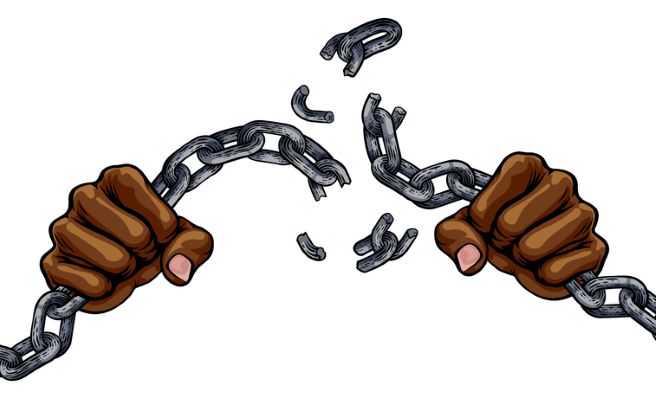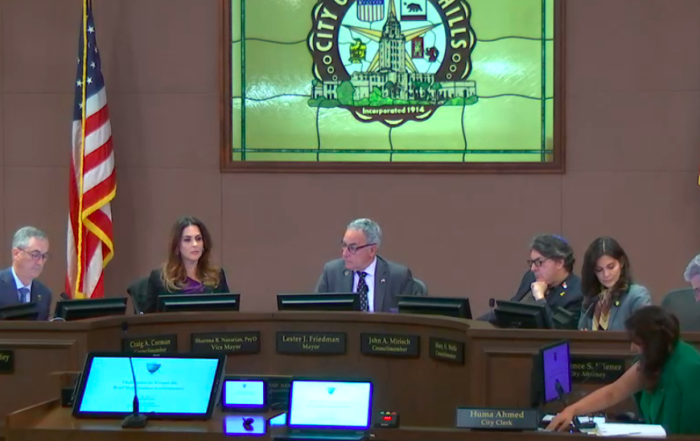In 2020, Assembly Bill 3121 established a Task Force to, according to the State Attorney General’s website, “Study and Develop Reparation Proposals for African Americans, with a Special Consideration for African Americans Who Are Descendants of Persons Enslaved in the United States (Task Force or Reparations Task Force). The purpose of the Task Force is: (1) to study and develop reparation proposals for African Americans; (2) to recommend appropriate ways to educate the California public of the task force’s findings; and (3) to recommend appropriate remedies in consideration of the Task Force’s findings.”
The Task Force’s final recommendations are due to the state legislature by July 1, and this past Saturday, the panel’s nine members provided a strong hint about those recommendations as it voted to affirm that the State of California must issue a formal and public apology for slavery and that it should possibly remedy racist ills through billions of dollars in payments to descendants to begin to make up for keeping Black Californians from developing generational wealth.
Westside Voice strongly believes our state government must fulfill the requests and recommendations of the Task Force, however expensive, to begin to heal California’s racist past. We believe California can’t simply conduct performative and symbolic gestures in formulating a Task Force like this, only to ho-hum and equivocate on its recommendations. We just act to remedy justice, or we are really no better than our ancestors.
Much is still unknown about the specific recommendations to be made or the exact costs that are still being calculated. But there have been several hints and suggestions put forward that the panel is likely to consider. Among them, economists have recommended amounts of cash payments based on calculations from losses in three major areas: health disparities, housing discrimination, and the mass incarceration and over-policing of African Americans.
The calculations provided the following numbers, as stated in Sunday’s Los Angeles Times:
- “Compensation for health disparities: $13,619 for each year of residency. This figure was derived by comparing life expectancy between Black Non-Hispanic and white non-Hispanic Californians.
- Compensation for mass incarceration and over-policing of African Americans: $2,352 for each year of residency in California during the war on drugs from 1971 to 2020.
- Compensation for housing discrimination: $3,366 for each year between 1933 and 1977 spent as a resident of the state of California.”
The number of Black Californians expected to qualify, which the Task Force states are: “An individual being an African American descendant of a chattel enslaved person or the descendant of a free black person living in the United States prior to the end of the 19th century,” is just under two million Californians. But even that number would produce staggering sums that would challenge even a state with a generous reserve. California is now facing budget deficits.
Still, we believe it is incumbent on the state to cleverly and adroitly develop a financing system that can accommodate payments at or close to those numbers. No one ever said social and economic justice comes cheap. And our guess is that these numbers likely lowball the reality of generational wealth that would have been developed on a more even playing field.
There are a host of additional remedies the panel could consider recommending to the legislature. Among them, and again reported in Sunday’s Los Angeles Times, are:
- “Repeal or amend Proposition 209, a measure approved by California voters that banned affirmative action in 1996.
- Analyze laws, policies and ordinances from the local to the state level for racial impact prior to passage and after implementation.
- Amend the California Constitution to prohibit involuntary servitude.
- Pay fair market value for jail and prison labor.
- Abolish the death penalty.
- Fund community wellness centers in African American communities.
- Strengthen the Bane Act by eliminating the requirement that a victim of police violence show that the officer “specifically intended” to commit misconduct.
- Declare election day a paid state holiday.
- Restore voting rights to all formerly and currently incarcerated people.
- Implement rent caps for historically redlined ZIP Codes.
- Increase grants and financial assistance to improve homeownership rates among African Americans, including subsidized down payments and mortgage payments to those who reside in formerly redlined neighborhoods
- Allow descendants who reside in formerly redlined neighborhoods to transfer the assessed value of their primary home to a newly purchased or constructed primary residence.
- Provide free college tuition for all California residents eligible for monetary reparations.
- Build more parks in African American communities.
- Identify and remove Confederate monuments, markers and memorials.
- Create a guaranteed income program for descendants of an enslaved person.
- Automatically increase minimum wage on a regular basis to adjust for increases to the cost of living, including inflation.
- Provide interest-free loans to owners of small businesses in African American commercial areas.
- End the cash bail system.
- Repeal the “three strikes” law.
- Adopt universal single-payer healthcare coverage and a healthcare cost control system.
- Increase Medi-Cal reimbursement rates to match reimbursement rates of private insurance.”
Convincing legislators to act on the panel’s recommendations will be no enviable task, but we implore our local legislators who are not African American – State Senator Ben Allen and Assemblymembers Jacqui Irwin and Rick Zbur – to embrace their efforts and help make things easier.
We acknowledge that overall it will be difficult. But that’s where we think legislators and the governor take the appropriate time they need in executing the second purpose of AB 3121 stated above: “to recommend appropriate ways to educate the California public of the task force’s findings.” Polls on public support for reparations for Black Americans are not in their favor, so it will be incumbent on the state to first allocate significant sums to hit the airwaves and make the case for reparations.
But even without changing public opinion, the state must act. The public wasn’t all that keen on integrating the armed forces or baseball, either. But they were the right thing to do years before they were actually enacted. A majority of the public will eventually see the light.
One proposal we do hope transpires before awaiting any public education campaign is a recommendation that at least some down payments for qualifying African American seniors can be calculated and made while they are still alive and able to benefit from them.
And while it may take years to figure out the rest of the recommendations and what can pass legislatively or as a ballot initiative – as well as figuring out the entirety of who is eligible and how they need to prove it, as well as how to finance multiple generations of beneficiaries – the work must take place.
If we are truly a progressive state, and if we are truly committed to justice, we must not only make up for past financial transgressions and abject violence, we as Californians must also make clear we value Black lives.
Stay informed. Sign up for The Westside Voice Newsletter
By clicking submit, you agree to share your email address with Westside Voice. We do not sell or share your information with anyone.








